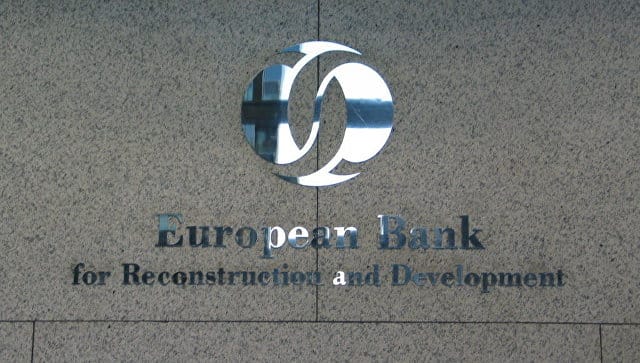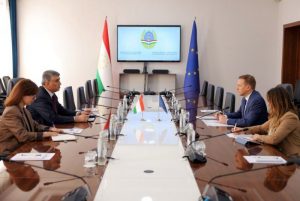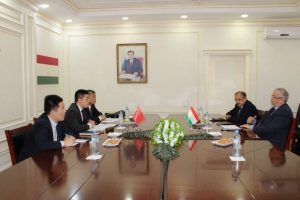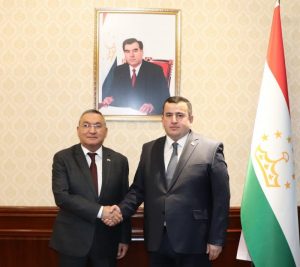EBRD and EU provided 46.5 million USD to support farmers in Tajikistan

Dushanbe, 19.10.2016. /NIAT “Khovar”/. The EBRD and the EU have launched a new €42 million (US$ 46.5 million) programmeto support farmers in Tajikistan.
In Tajikistan, agriculture accounts for the majority of employment but suffers from very low productivity. The new Enhanced Competitiveness of Tajik Agribusiness Programme (ECTAP) is designed to boost it.
According to EBRD operations in Tajikistan, the funds will be provided to selected microfinance institutions and commercial banks in Tajikistan for on-lending to micro, small and medium-sized enterprises (MSMEs) in the agribusiness sector across the country, with 80 per cent of financing distributed outside of the capital, Dushanbe.
Director and Head of EBRD operations in Tajikistan, Richard Jones, said: “With the right investments in processing, packaging and quality standards, Tajikistan’s agricultural production has significant potential to expand, securing livelihoods and boosting exports. The new financing programme is the latest instrument the EBRD is deploying to support this potential, following on from a previous lending programme via local financial partners, business advisory services and direct financing to local entrepreneurs.”
It should be noted that agriculture employs over 50 per cent of the workforce in Tajikistan, but accounts for only a quarter of GDP. The sector depends heavily on just a few crops – wheat, barley, onions and garlic. The new programme will also aim to help diversify agriculture in the country to include other fruit and vegetables, honey production, and the expansion of animal husbandry and dairy farming.
The first microfinance institution to receive a tranche under the new programme is Arvand.
Arvand, which has a large national network of dozens of branches and service outlets with a focus on the northern regions, is already focusing on agribusiness MSEs, which constitute over a third of their portfolio.
Shoira Sadykova, Arvand’s General Director, said: “I am sure that our experience and our strong, long-term partnerships with clients, as well as the fact that 60 per cent of our offices are in rural areas, will be key to the successful implementation of this programme.”











 Political Consultations Between the Republic of Tajikistan and the United Kingdom Held in London
Political Consultations Between the Republic of Tajikistan and the United Kingdom Held in London Iranian scholar praises Emomali Rahmon’s Initiative to Distribute “Shahnameh” to Every Tajik Family
Iranian scholar praises Emomali Rahmon’s Initiative to Distribute “Shahnameh” to Every Tajik Family Tajikistan, European Union Discuss Improving Mutual Legal Assistance
Tajikistan, European Union Discuss Improving Mutual Legal Assistance Tajikistan, China Discuss Expanding Strategic, Scientific Cooperation
Tajikistan, China Discuss Expanding Strategic, Scientific Cooperation Tajikistan, Pakistan Discuss Energy Cooperation, Plan Joint Commission Meeting
Tajikistan, Pakistan Discuss Energy Cooperation, Plan Joint Commission Meeting Dushanbe to Host International Navruz Festival Showcasing Tajik Culture and Tourism
Dushanbe to Host International Navruz Festival Showcasing Tajik Culture and Tourism Asian Development Bank President Masato Kanda to Visit Tajikistan in March
Asian Development Bank President Masato Kanda to Visit Tajikistan in March Tajikistan, Bashkortostan Officials Discuss Expanding Interregional Cooperation
Tajikistan, Bashkortostan Officials Discuss Expanding Interregional Cooperation Tajikistan, Azerbaijan Discuss Strengthening TV and Radio Cooperation
Tajikistan, Azerbaijan Discuss Strengthening TV and Radio Cooperation Tajikistan, Kazakhstan Discuss Expanding Economic and Trade Cooperation
Tajikistan, Kazakhstan Discuss Expanding Economic and Trade Cooperation Tajikistan and India Discuss Expanding Industrial and Technology Cooperation in New Delhi
Tajikistan and India Discuss Expanding Industrial and Technology Cooperation in New Delhi Tajikistan to Modernize Postal Services through Automation Project
Tajikistan to Modernize Postal Services through Automation Project














